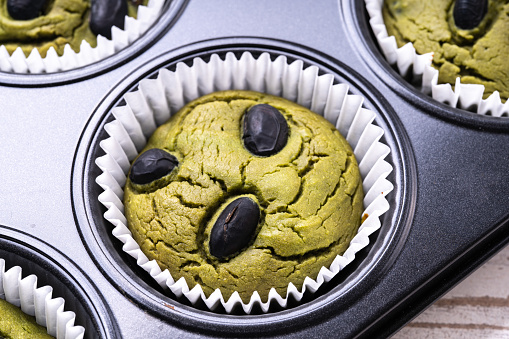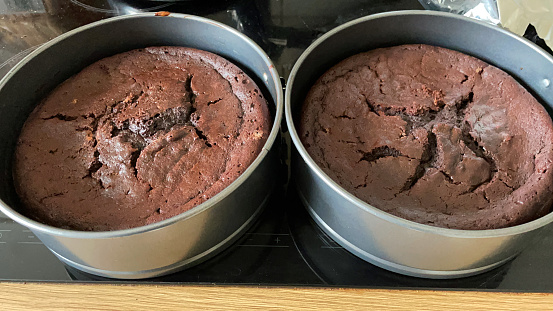Cookware aluminium or stainless steel is an essential part of every kitchen, and choosing the right material for your cookware can make a big difference in your cooking experience. Aluminium and stainless steel are two popular materials for cookware, each with its own advantages and disadvantages.
Aluminium cookware is lightweight, heats up quickly, and is an excellent heat conductor, which means it distributes heat evenly throughout the pan. This makes it ideal for cooking foods that require precise temperature control, such as sauces, soups, and stews. Aluminium is also affordable, making it an excellent choice for people on a budget.
However, there are some downsides to aluminium cookware. It's not as durable as other materials, and it can easily scratch, dent, or warp. Additionally, acidic foods can react with the aluminium and cause the cookware to discolor and affect the taste of the food.
On the other hand, stainless steel cookware is more durable and resistant to scratches and dents. It's also non-reactive, which means it won't discolor or affect the taste of your food. Stainless steel is an excellent choice for cooking foods that require high heat, such as searing or sautéing.
However, stainless steel is not an excellent heat conductor, which means it can have hot spots, and food may cook unevenly. It's also more expensive than aluminium cookware, and it can be heavier, making it difficult to handle for some people.
When choosing between cookware aluminium or stainless steel , it's essential to consider your needs and preferences. If you're on a budget and need a lightweight option for cooking delicate dishes, aluminium may be the best choice for you. If you want durable and non-reactive cookware that can handle high heat cooking, stainless steel may be a better option.
Ultimately, both materials have their pros and cons, and it's up to you to decide which one is best suited for your cooking needs. By considering the factors mentioned above, you'll be able to make an informed decision and choose the perfect cookware for your kitchen.
Blog Series: A Beginner's Guide for Stainless Steel or Aluminum Baking Pans

Advantages Of Aluminium Cookware
Aluminium cookware has several advantages that make it a popular choice for many households. One of the most significant benefits is its lightweight design. Aluminium is a light metal, so it's easy to handle, even when filled with food. This makes it a great option for people who may have difficulty lifting heavier pots and pans.
Another advantage of aluminium cookware is its excellent heat-conducting properties. It heats up quickly and distributes heat evenly, making it an ideal choice for cooking various dishes. The result is perfectly cooked meals that are evenly cooked throughout.
In addition, aluminium cookware is nonstick, which means food won't stick to the surface during cooking. This makes it easy to clean, as you won't have to spend time scrubbing or scraping the surface to remove food residue.
Durability is also a significant advantage of aluminium cookware. It won't warp or corrode over time, which means it can last for years without the need for replacement. This makes it a cost-effective choice in the long run, as you won't have to replace your cookware frequently.
Finally, aluminium cookware looks sleek and modern in any kitchen. It has a smooth, polished finish that adds a touch of elegance to your cooking space. It also comes in various colors and styles, so you can choose the one that best matches your kitchen décor.
In summary, the advantages of aluminium cookware include its lightweight design, excellent heat conductivity, nonstick surface, durability, and sleek appearance. These benefits make it a top choice for many households, whether you're a beginner cook or a seasoned chef.
Blog Series: A Beginner's Guide for Wholesale Aluminum Pans

Advantages Of Stainless Steel Cookware
Stainless steel cookware has several advantages over other types of cookware, including aluminum. One of the most significant advantages of stainless steel cookware is its durability and longevity. Unlike aluminum cookware, stainless steel doesn't dent or corrode easily, which means it can be used for years without worrying about deterioration.
Another advantage of stainless steel cookware is its heat resistance. Stainless steel can withstand high temperatures without warping, which makes it an ideal choice for professional and home cooks alike. It also won't react with acidic foods like tomatoes or citrus fruits, making it a safe choice for preparing all types of meals.
Stainless steel cookware has a mirror-like finish that looks elegant enough to serve food directly from the pot or pan, making it perfect for entertaining. Additionally, stainless steel is lightweight and easy to clean. All you need is a simple wipe down with a damp cloth for most messes. Stainless steel offers a reliable performance that's sure to satisfy any chef looking for quality cookware that'll stand up to rigorous daily use.
Another advantage of stainless steel cookware is that it is non-reactive, which means it won't react with acidic or alkaline foods, nor will it impart any metallic taste or flavor to the food. It is also non-porous, which means it won't absorb any flavors or odors from previous cooking.
Furthermore, stainless steel cookware is versatile, allowing it to be used on various types of cooktops, including induction, gas, electric, and ceramic. It is also oven-safe, allowing for convenient transfer from stovetop to oven.
Finally, stainless steel cookware is relatively low-maintenance. It can be washed with soap and water, and most stainless steel cookware is dishwasher safe. It doesn't require any special treatments or seasoning like cast iron, which makes it easy to use and care for.
In summary, stainless steel cookware offers several advantages over other types of cookware, including durability, heat resistance, non-reactivity, versatility, and low maintenance. These benefits make it an excellent choice for both professional and home cooks alike.
Blog Series: A Beginner's Guide for Stainless Steel Cookware Benefits

What To Consider When Choosing Cookware Aluminium or Stainless Steel
Cookware aluminium or stainless steel plays a crucial role in determining the quality of your food. Therefore, it's important to consider several factors when selecting the right cookware for your kitchen.
First and foremost, you should consider the material of the cookware. For instance, aluminum is lightweight and conducts heat well, making it ideal for quick cooking tasks. However, it may not be the best option for acidic foods as it can react and corrode over time. On the other hand, stainless steel is highly durable and does not corrode easily, but it may take longer to heat up and may be heavier to handle.
Another critical factor to consider is the type of cooking you will be doing. If you plan on cooking stews or soups, you may want to consider a material like cast iron, which can retain heat and distribute it evenly over long periods. Non-stick cookware is also a popular option, as it allows for easy food release and cleaning.
The size and shape of the cookware also matter. Make sure to choose pots and pans that are appropriate for the amount of food you will be cooking and the size of your stove.
Lastly, you should consider your budget and the amount of maintenance you're willing to put into your cookware. While some materials may be more expensive upfront, they may save you money in the long run if they are durable and require less maintenance.
In conclusion, when selecting cookware, it's crucial to consider the material, type of cooking, size and shape, budget, and maintenance required. By keeping these factors in mind, you can choose the best cookware that suits your needs and helps you achieve the best possible cooking results.
Cookware aluminium or stainless steel plays a crucial role in determining the quality of your food. Therefore, it's important to consider several factors when selecting the right cookware for your kitchen.
First and foremost, you should consider the material of the cookware. For instance, aluminum is lightweight and conducts heat well, making it ideal for quick cooking tasks. However, it may not be the best option for acidic foods as it can react and corrode over time. On the other hand, stainless steel is highly durable and does not corrode easily, but it may take longer to heat up and may be heavier to handle.
Another critical factor to consider is the type of cooking you will be doing. If you plan on cooking stews or soups, you may want to consider a material like cast iron, which can retain heat and distribute it evenly over long periods. Non-stick cookware is also a popular option, as it allows for easy food release and cleaning.
The size and shape of the cookware also matter. Make sure to choose pots and pans that are appropriate for the amount of food you will be cooking and the size of your stove.
Lastly, you should consider your budget and the amount of maintenance you're willing to put into your cookware. While some materials may be more expensive upfront, they may save you money in the long run if they are durable and require less maintenance.
In conclusion, when selecting cookware, it's crucial to consider the material, type of cooking, size and shape, budget, and maintenance required. By keeping these factors in mind, you can choose the best cookware that suits your needs and helps you achieve the best possible cooking results.
Blog Series: A Beginner's Guide for Cookware Aluminum or Stainless Steel

Conclusion of Cookware Aluminium Or Stainless Steel
Cookware Aluminium Or Stainless Steel is an essential part of any kitchen, and choosing the right type of material can make a significant difference in the quality of your cooking. When deciding which cookware to purchase, there are several factors to consider, such as the type of food you'll be cooking, the frequency of use, and your budget.
One popular option for cookware is aluminium. Aluminium cookware is lightweight and has excellent heat conductivity, making it a popular choice for many home cooks. The ability to heat quickly and evenly is particularly useful for cooking dishes that require precise temperature control, such as stir-fries or sauces. However, it's important to note that aluminium cookware can react with acidic foods, which can lead to discoloration and a metallic taste in the food. To avoid this, you may need to use a non-reactive coating or opt for stainless steel or ceramic cookware.
Stainless steel is another popular material for cookware. It's known for its durability and resistance to corrosion, which makes it a good investment for those looking for a long-lasting set of cookware. Stainless steel is also an excellent choice for dishes that require high heat, such as searing or sautéing. However, stainless steel is heavier than aluminium and doesn't distribute heat as evenly, which can lead to hot spots on the cooking surface. This can be mitigated by opting for cookware with a multi-ply construction that combines stainless steel with other materials, such as copper or aluminium, for better heat distribution.
Cookware Aluminium Or Stainless Steel is an essential part of any kitchen, and choosing the right type of material can make a significant difference in the quality of your cooking. When deciding which cookware to purchase, there are several factors to consider, such as the type of food you'll be cooking, the frequency of use, and your budget.
One popular option for cookware is aluminium. Aluminium cookware is lightweight and has excellent heat conductivity, making it a popular choice for many home cooks. The ability to heat quickly and evenly is particularly useful for cooking dishes that require precise temperature control, such as stir-fries or sauces. However, it's important to note that aluminium cookware can react with acidic foods, which can lead to discoloration and a metallic taste in the food. To avoid this, you may need to use a non-reactive coating or opt for stainless steel or ceramic cookware.
Stainless steel is another popular material for cookware. It's known for its durability and resistance to corrosion, which makes it a good investment for those looking for a long-lasting set of cookware. Stainless steel is also an excellent choice for dishes that require high heat, such as searing or sautéing. However, stainless steel is heavier than aluminium and doesn't distribute heat as evenly, which can lead to hot spots on the cooking surface. This can be mitigated by opting for cookware with a multi-ply construction that combines stainless steel with other materials, such as copper or aluminium, for better heat distribution.

Top 5 FAQS Of Cookware Aluminum Or Stainless Steel
1. Which is better aluminium or stainless steel for baking?Both aluminum and stainless steel have some health benefits when used for cooking. One of their advantages is that they don't leach harmful substances into your food, which makes them safe to use. However, if you want a more versatile and enjoyable cooking experience, we suggest you go for stainless steel. Unlike aluminum, stainless steel is durable, scratch-resistant, and doesn't react with acidic or alkaline ingredients. This means you can use it for a wide range of cooking methods, such as searing, sautéing, simmering, and even baking. Additionally, stainless steel pans and pots are easy to clean and maintain, and they can retain their shiny appearance for years if properly cared for. Therefore, if you want to invest in a cookware material that can last you a long time and give you great results, consider buying stainless steel.
2.Why use stainless steel instead of aluminum?When deciding between aluminum and stainless steel, it's important to consider the specific needs of your project. While aluminum is known for its rust resistance and lightweight properties, it comes at the cost of reduced strength and overall corrosion resistance. In contrast, stainless steel offers exceptional corrosion resistance and tensile strength, but it's typically heavier than aluminum.
Therefore, if your project requires high durability and resistance to corrosion, stainless steel is a better choice. On the other hand, if weight is a critical factor and corrosion resistance is less of a concern, aluminum may be a more suitable material. Ultimately, the decision between aluminum and stainless steel depends on your specific requirements and priorities.
3.Is aluminium safer than stainless steel?When it comes to cookware, safety is a top concern. While both aluminium and stainless steel are popular choices, stainless steel is generally considered to be safer.
Stainless steel cookware is non-reactive, which means it won't interact with acidic foods and won't impart any unwanted flavors or toxins into your meals. This makes it a safe and healthy option for long-term use.
Additionally, stainless steel is highly resistant to corrosion and scratches, and it maintains its silver shine even after years of use. This type of cookware is also dishwasher safe, which makes cleaning up after meals quick and easy.
Compared to aluminium, stainless steel is more durable and provides better safety features. It's a great choice for those who are looking for a safe and reliable cookware option.
4.Why do chefs prefer stainless steel?Stainless steel cookware is a popular choice among chefs, professional cooks, and restaurants. One of the primary reasons for this is its durability - stainless steel cookware is virtually indestructible, which means that it can withstand heavy use and frequent cleaning without losing its shape or quality.
Another benefit of stainless steel cookware is its excellent heat distribution. The material is known for its ability to evenly distribute heat across the cooking surface, which ensures that food is cooked thoroughly and evenly. Additionally, stainless steel pans can be used to create a delicious sear on meats and other ingredients, thanks to their ability to reach high temperatures quickly.
Finally, when used correctly, stainless steel pans can also prevent food from sticking. This is due to the material's non-reactive surface, which allows for easy food release and makes cleaning up a breeze.
In summary, chefs prefer stainless steel cookware because of its durability, excellent heat distribution, and non-stick properties when used properly.
5.What are the pros and cons of aluminum vs stainless steel?Aluminum and stainless steel have different strengths and weaknesses. Stainless steel is strong and durable, resistant to high temperatures and acid, making it great for kitchen appliances. Aluminum is lighter and heats up quickly and evenly, making it a popular choice for cookware. However, aluminum is more prone to scratches and reactions with food, while stainless steel is more versatile in terms of design. Ultimately, your choice should depend on your needs and preferences, including strength, weight, thermal conductivity, reactivity with food, cost, and design.